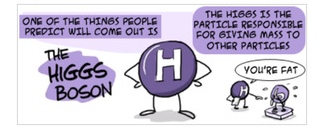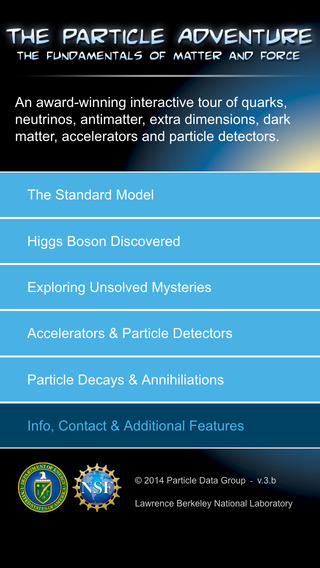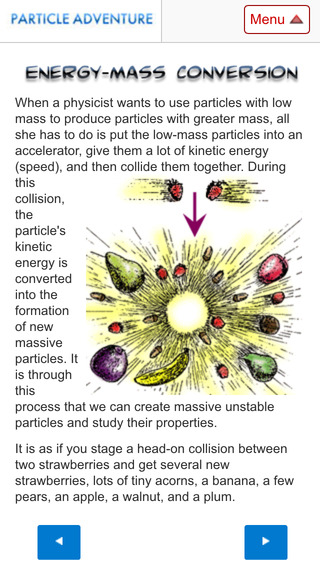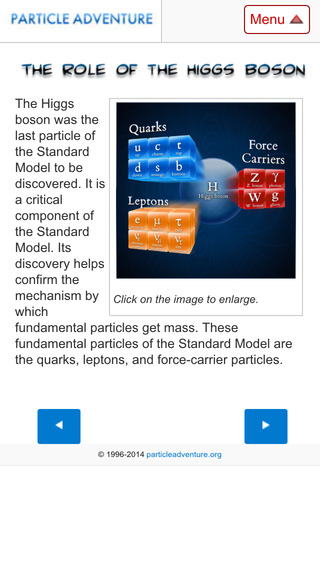Next time you get the itch to check Facebook on your mobile phone, why not scroll through the latest unsolved physics mysteries instead? Now a free app for Android and Apple devices called The Particle Adventure makes checking out the world of quarks, dark matter, and particle accelerators as easy as tapping touchscreen icons.
Produced by the Particle Data Group at Lawrence Berkeley National Lab (Berkeley Lab), The Particle Adventure is based on the popular and highly praised website of the same name. The science of particle physics is illustrated via categories including “How Do We Know Any of This?” and “Unsolved Mysteries.” You can skim through the major categories or dig deep into topics such as the discovery of the Higgs boson.
Within the app there are five basics adventure paths to take: The Standard Model, Accelerators and Particle Detectors, Higgs Boson Discovered, Unsolved Mysteries, Particle Decays and Annihilations.
The Particle Adventure is filled with cartoons, animations, news of recent physics discoveries, quizzes, quotes, and more. It complements the newly released Fundamental Particles and Interactions chart, which incorporates the major research findings of the past three decades including quarks, the Higgs boson, neutrinos, and the fundamental forces.
The history of The Particle Adventure goes back to 1989 when it was a HyperCard computer program developed to enhance learning from the Fundamental Particles and Interactions chart. In 1995, The Particle Adventure was converted into a dynamic website that receives about 5 million hits a year and has earned recognition from Scientific American, the American Association for the Advancement of Science, The U.S. Department of Energy, USA Today, and others.
Now, in this world of mobile content and entertainment, The Particle Adventure has been reborn again as a highly rated mobile app. “This year alone there were about140 billion mobile app downloads, up from 21 billion in 2011. We’re excited to bring The Particle Adventure to the growing audience of mobile app users, and especially the younger audience,” says Michael Barnett, Berkeley Lab researcher and lead developer for the app. Berkeley Lab’s Paul Schaffner contributed technical expertise on the project.
A number of renowned physicists provided the content for The Particle Adventure App, and physics students were responsible for the design, artwork, and much of the humor, such as cartoon particles trading insults. The collaborative effort to make particle physics approachable via website and app seems to be working. One user’s comment: “I would never have thought I could teach particle physics to 15 year-old students, but The Particle Adventure has made a believer of me! Your excellent blend of humor, graphics, and science captivated my students, and kept them clicking merrily. Bravo!”
The U.S. Department of Energy funded the creation of The Particle Adventure App. The app can be downloaded for free from the Play Store (Android) or the App Store (Apple).



